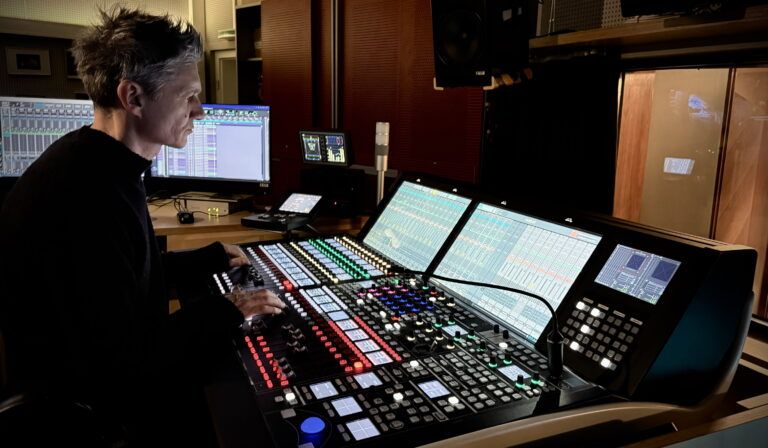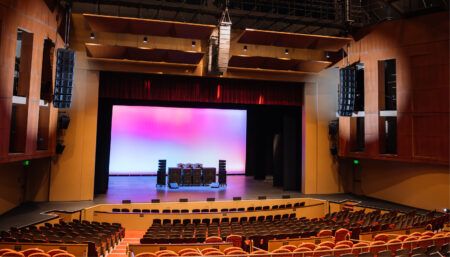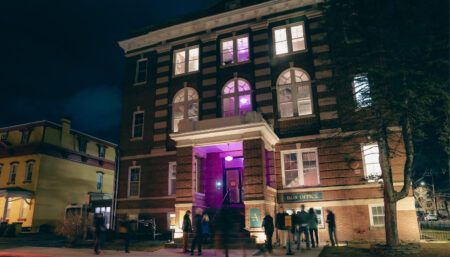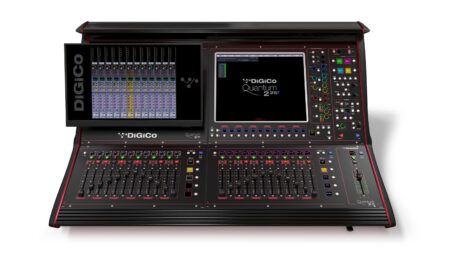As part of a technical modernisation initiative, Austrian public broadcaster ORF has upgraded the audio control room at the Grosses Festspielhaus (Grand Festival Hall) in Salzburg, Austria, with Lawo technology.
The 2,200-seat Grosses Festspielhaus is a venue for opera and concerts. Since its opening in 1960, it has served as central stage for the Salzburger Festspiele (Salzburg Festival).
The modernisation, completed at the end of 2023, features a Lawo mc²56 MkIII audio production console with 32 faders. selected for its sound quality, flexible configuration options, and integration with ORF’s existing systems.
The system is powered by the A__UHD Core audio engine, complemented by A__stage64 and A__stage80 stageboxes for high-resolution audio interfacing, and A__madi6 for integration with additional audio components. Lawo shared that the Waves SoundGrid integration provides extensive sound processing capabilities, while a fully IP-based network infrastructure with redundant switches ensures a stable, future-proof signal transmission. The new Lawo system has been in operation since early 2024, successfully supporting major events such as the Mozart Weeks, Easter Festival, and other music events.
“Opera productions uniquely blend music, vocals and stage performance,” said Frank Wendtner-Andraschko, ORF tonmeister. “The orchestra plays from the pit, while singers and choirs perform on stage. Additional musical and vocal elements are often positioned behind the scenes, on lighting bridges, in the loft, or beneath the stage. Each production presents new challenges, from microphone placement to mixing in 5.1 surround.”
“The Lawo mc²56 MkIII convinced us with its flexibility and intuitive operation,” Wendtner-Andraschko continued. “The extensive Free Controls allow us to assign global or channel-specific parameters, ensuring fast and precise workflow adjustments. Additionally, MIDI integration, for example, enables remote control of microphone panning for wireless stage microphones (hidden microphones), greatly simplifying our production processes.”
Another factor in choosing Lawo was its integration into ORF’s broader infrastructure. “Our studio control rooms and OB trucks already use Lawo technology, allowing us to rely on a proven system,” said Wendtner-Andraschko. “IP-based signal distribution enables us to seamlessly control productions not only in the Grand Festival Hall, but also in the Felsenreitschule and the House for Mozart. The stage boxes are then housed centrally in the central hub, where the signals from all the venues are received and distributed via fibre optics.”
Lawo noted that operas and large orchestral productions place particularly high demands on an audio mixing console: in addition to a large number of channels, often well over 60 input channels, high dynamics, fidelity and lossless signal processing are crucial. Lawo said its mc²56 MkIII fulfils these requirements with high-quality microphone preamps for maximum transparency, flexible routing options for monitoring, broadcasting and recording, as well as seamless IP connectivity; and that redundant systems guarantee maximum reliability and uninterrupted performance.
Lawo added that thanks to the IP technology, scalable DSP capabilities, and a flexible network architecture, the system is well-equipped to handle future production requirements.
“Our investment in Lawo technology has already paid off,” said Wendtner-Andraschko. “We now have a reliable, sonically outstanding, and highly adaptable solution that meets the exacting demands of the Salzburg Festival and beyond.”





